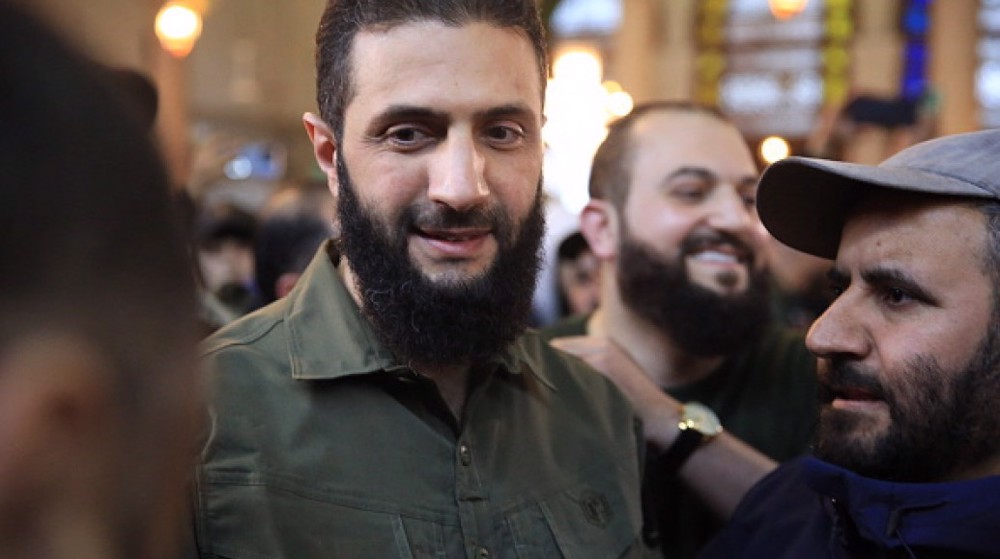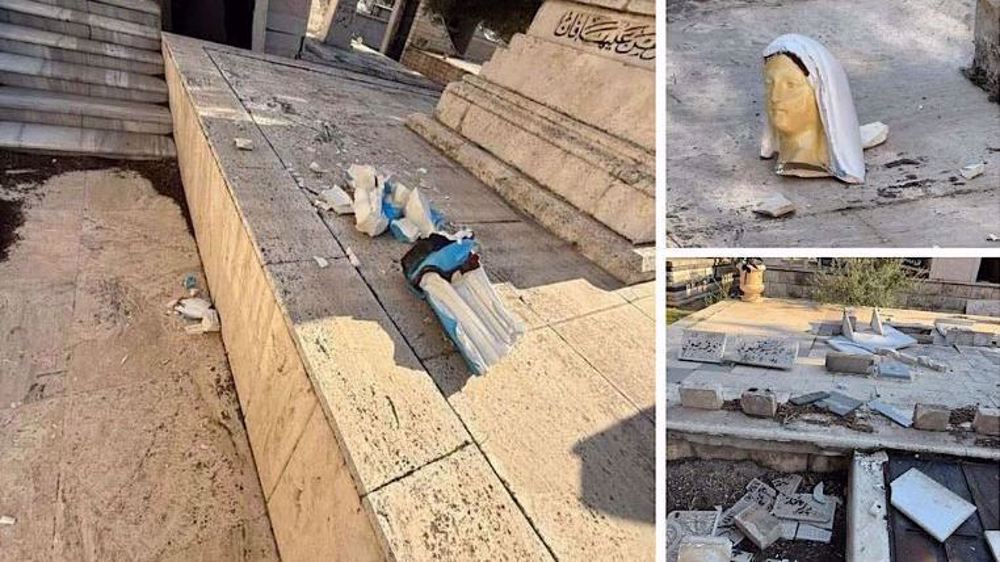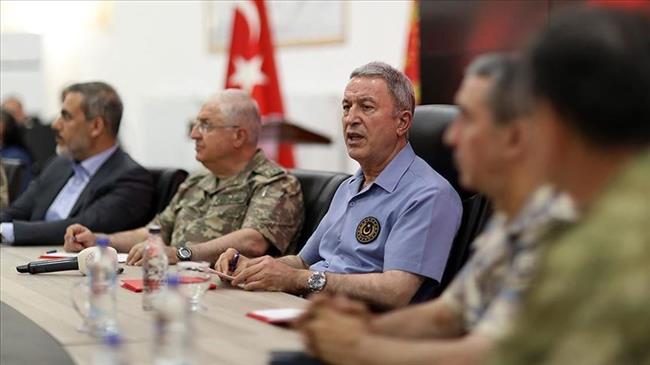Syrian soldiers, allies reach edges of major militant bastion in Idlib
Syrian government forces, backed by fighters from allied popular defense groups, have gained more ground against Takfiri militants in the southern edge of the country’s northwestern province of Idlib in their latest offensive that was launched last week.
On Sunday, Syrian army troops and their allies established full control over Kfaridoun and Sabbaghiyah farms, which lie in an area between the towns of Madaya and Kafrsajna.
سيطرت وحدات الجيش العربي السوري على مزارع #كفريدون و #الصباغية في المنطقة الواقعة بين مدايا وكفرسجنة بريف #إدلب الجنوبي وتمكنت من رصد طريق #خان_شيخون - #كفرسجنة وسط استمرار المعارك مع العصابات المسلحة على محاور شمال مدينة خان شيخون .
— أخبار سوريا الوطن Syria (@SyriawatanNews) August 18, 2019
Earlier in the day, Syrian soldiers managed to regain control over Tal Kfar Idoun area, which is located west of a key highway that connects the capital Damascus with the strategic northern city of Aleppo.
Meanwhile, the so-called Syrian Observatory for Human Rights said there were “fierce clashes” between foreign-backed militants and pro-government forces one kilometer west of Khan Shaykhun, which serves as a major bastion of Takfiri terrorists.
The Britain-based war monitor said the latest fighting broke out overnight Saturday to Sunday, and has already killed two militants and 11 members of the pro-government forces.

The observatory added that Syrian forces managed to retake the village of Tel al-Nar and nearby farmland northwest of Khan Shaykhun on Sunday and were closing in on the highway.
The government troops’ advance towards Khan Shaykhun will make the situation more difficult for militants in their last remaining pocket of territory in the neighboring province of Hama, including the towns of Morek, Kafr Zeita and Latamneh.
Over the past few days, Syrian government forces and allied fighters have been advancing in a bid to encircle Khan Shaykhun from the north and the west and seize the highway. They are deployed about three kilometers from the road.
On August 5, the Syrian army declared in a statement the start of an offensive against foreign-sponsored militants in Idlib after those positioned in the de-escalation zone failed to honor a ceasefire brokered by Russia and Turkey and continued to target civilian neighborhoods.
“Even though the Syrian Arab Army declared a ceasefire in the de-escalation zone of Idlib on August 1, armed terrorist groups, backed by Turkey, refused to abide by the ceasefire and launched many attacks on civilians in surrounding areas,” SANA cited a statement released by the General Command of the Army and Armed Forces.
“The Turkish regime’s persistence in allowing its terrorist pawns in Idlib to carry out attacks proves that Ankara is maintaining its destructive approach and is ignoring its commitments as per the Sochi agreement. This has emboldened terrorists to fortify their positions, and led to the spread of the threat of terrorism across the Syrian territory,” the statement added, referring to the Russian city where the truce deal was agreed upon.
The Syrian military’s statement came a day after Turkey’s President Recep Tayyip Erdogan said Ankara would launch a military operation in a Kurdish-controlled area in northern Syria.
Under the Sochi agreement, all militants in the demilitarized zone that surrounds Idlib and also parts of the provinces of Aleppo and Hama were supposed to pull out heavy arms by October 17 last year, and Takfiri groups had to withdraw two days earlier.
The National Front for the Liberation of Syria is the main Turkish-backed militant alliance in Idlib region, but the Takfiri Hayat Tahrir al-Sham (HTS) terrorist group, which is a coalition of different factions of terror outfits largely composed of the Jabhat Fateh al-Sham, holds a large part of the province and the zone.
The HTS, which is said to be in control of some 60 percent of Idlib, has yet to announce its stance on the buffer zone deal.
Car bomb kills Kurdish police officer in northeast Syria
Separately, a car bomb killed a police officer and wounded two other people in the Kurdish-majority city of Qamishli, which is situated in Syria’s northeastern province of Hasakah.
Kurdish police spokesman Ali al-Hassan said the car bomb was detonated by “remote control” near a school, “killing a member of our (police) forces.”

An AFP correspondent at the scene said the car bomb went off as a Kurdish police patrol was driving by.
There was no immediate claim of responsibility for the attack.
On July 11, eleven people suffered injuries when a car bomb exploded near a church in Qamishli. According to an AFP report, the metal gate of the church was slightly dented by the blast, but the building otherwise emerged intact.

Local source said the force of the explosion damaged a number of shops and cars parked in the area. There was no immediate claim for the attack.
The Israeli regime and its Western and regional allies, Damascus says, have been the major sources of support for Takfiri terrorists since early 2011, when conflict broke out in Syria.
Leader: Iran has no proxy forces in West Asia
US fighter aircraft shot down ‘in friendly fire’ amid aggression on Yemen
Yemeni FM: Israel’s sponsors accountable for ongoing aggression on Sana’a
Eight Palestinians killed as Israel attacks Gaza school, hospitals
VIDEO | Rome, Milan host new protests in solidarity with Palestinians
Dec. 21: ‘Axis of Resistance’ operations against Israeli occupation
Spain jurists demand ties with Israel ties be cut
VIDEO | Press TV's news headlines
















 This makes it easy to access the Press TV website
This makes it easy to access the Press TV website